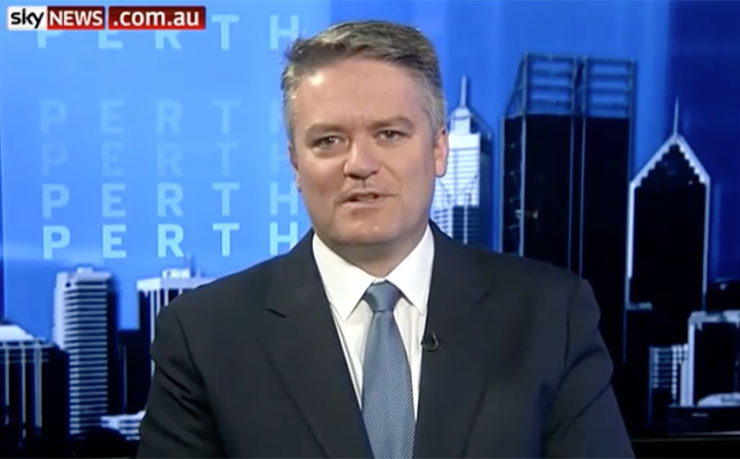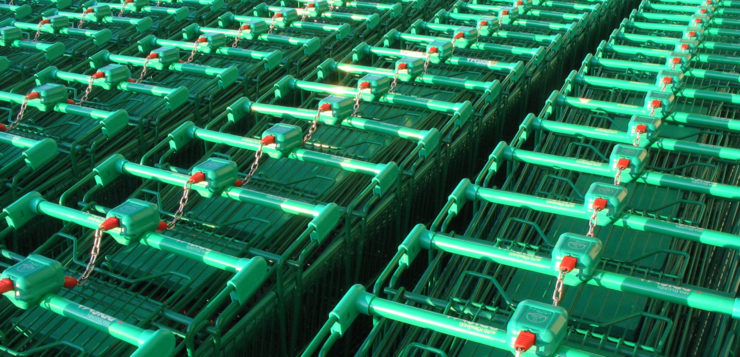Mortgage holders were dealt another blow recently when the Reserve Bank of Australia increased interest rates by 25 basis points, to an 11-year high. In response, the satirical online publication The Shovel quipped, ‘RBA cleverly responds to business-driven inflation by increasing struggling family’s mortgage by $150 a month’.
It continued: “When big businesses are pushing up prices and announcing record profits, the best way to respond is to push Julie and Trevor Smith from Werribee to the brink of bankruptcy.”
Amusing, at least upon first reading. But it hits a little too close to home for hundreds of thousands of working people who get by paycheck to paycheck. New data shows prices rose 6.8 per cent for the year to April, well outside of the RBA’s target band of two to three per cent. Housing is increasingly unaffordable in most of the major cities. Food costs have risen by nearly eight per cent, and if you drive to work… good luck at the bowser.
But who should we blame for the current inflation crunch? The business lobby has been telling us that it’s a multifaceted problem driven by a mix of supply shock and demand-side pressures.
Yes, the Russian invasion of Ukraine has resulted in escalating fuel and agricultural prices. And a combination of natural disasters and delays in transporting goods and services have caused prices to rise globally. In addition, the aptly dubbed ‘wage-price spiral’ theory has roared back into vogue; according to the Chamber of Commerce, a 5.75 per cent pay rise granted from July 1st to the lowest paid workers ‘consigns Australia to high inflation’.
Yet there’s growing evidence to suggest that strategically inflated prices – in other terms, corporate profiteering or price gouging – is a leading cause of high inflation.
Research published by Dr Jim Stanford from the Australia Institute, and cited by New Matilda, notes that corporate profits, not wages, are a major driver of the country’s high inflation.
The progressive think tank argues that business profits account for 69 per cent of inflation above the RBA’s target band, calling it a ‘profit-price spiral’. And the figures are telling – earnings results posted by supermarkets, mining and energy companies, banks, and the national airline are skyrocketing.
In total, Stanford identified that to the September 2022 quarter, businesses ‘increased prices by a total of $160 billion per year over and above their higher expenses for labour, taxes, and other inputs, and over and above profits generated by growth in real economic output.’
In what might be described as an ‘unholy alliance’, the latest economic report released by the Organisation of Economic Cooperation and Development, led by former Liberal finance minister Mattias Cormann, confirmed this research concluding that ‘unit profits’ made up a greater share of price increases than labour costs in Australia.

Interestingly, evidence of a ‘profit-price spiral’ is observed in other regions. In a recent note, economists from ING observed that in Germany, “companies have been hiking prices” ahead of a rise in manufacturing and input costs and that “corporate profits can explain a significant share of the increase in prices”.
The International Monetary Fund has also weighed in with Chief Economist Pierre-Olivier Gourinchas stating that “what we’ve seen in the last year is prices rising very rapidly, but wages have not increased nearly as much, and that’s why we have a cost-of-living crisis”.
Add to this the March minutes of the European Central Bank (ECB), which stated that an “increase in [corporate]profits had been significantly more dynamic than that of wages” in driving inflation, and a clearer picture emerges.
What’s become apparent during the last few years is that firms tend to use sector-wide shocks to hike prices and expand profit margins, often facilitated through temporary monopoly power generated by supply bottlenecks or domestic monetary policy.
While few begrudge the central exercise of profit-making in a capitalist economy, the burden wrought by high inflation should not be disproportionately levelled upon average Australian workers and residents, who have contributed little to the current cost of living challenge.
Perhaps it’s again time to take a deeper look at tax arrangements governing excessive profits priced well above unit inputs; and the subsequent monetary levers employed by the RBA to address high inflation.
Alternatively, we could wait for The Shovel to provide a witty and honest assessment for the ‘Julie and Trevor Smiths’ of the world.
Donate To New Matilda
New Matilda is a small, independent media outlet. We survive through reader contributions, and never losing a lawsuit. If you got something from this article, giving something back helps us to continue speaking truth to power. Every little bit counts.




